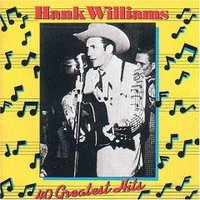
If you get the movie on DVD, be sure to watch the documentary with the cast and director. It has a lot of interesting insights into the movie. One of the things Bogdanovich talked about was that he didn't want a soundtrack for the movie. He only wanted music of the era (or earlier) playing in the background on record players or juke boxes or radios (his own voice is one of the DJ's) because he wanted us to hear only what the characters themselves would hear. And I noticed that a couple of the Hank Williams songs played more than once, which added to the realism. And the relative silence also added to what Erin called the quiet desperation of their lives.
What I really liked about that decision is that it didn't rely on music as an emotional prod. It didn't artificially superimpose this layer of mood onto the film. We knew when to be happy or sad or apprehensive; we didn't need music to cue us. I don't know whether he was the first director to eschew music in that way, but I think it was brilliant. It got me thinking critically about how music works in other movies.
10 comments:
I admit the soundtrack of a movie is not something I often think about. How many movies follow the "Picture Show" formula? I totally agree about the lack of emotional prodding.
Erin, I remember your commenting on the score of "Brokeback Mountain." I thought that really worked, too, even though I can't decide whether I think it was emotionally manipulative or emotionally complementary. I think the latter.
I found this on Wikipedia, which I think will interest Rick especially because of the reference to Dogme 95:
Most films have between forty and seventy-five minutes of music. However, some films have very little or no music; others may feature a score that plays almost continuously throughout. Dogme 95 is a genre that has music only from sources within a film, such as from a radio or television. This is called "source music" because it comes from an on screen source that can actually be seen or that can be inferred (in academic film theory such music is called "diegetic" music, as it emanates from the "diegesis" or "story world").
Interesting. It works so well with this movie and its bleakness. A thick musical score would kind of undermine that feeling, I think.
"Brokeback Mountain" is another movie of quiet desperation. But it has a very lush setting, at least in the mountain scenes.
According to Roger Ebert, Bogdanovich basically pioneered this technique with music:
(Bogdanovich) used a soundtrack entirely made up of pop songs, which was something new (Scorsese had tried it with his first film, in 1967). It was mostly Hank Williams who provided the soundtrack for these lives, and Bogdanovich used real sources in the scenes for the music -- radios, jukeboxes -- where "Cold, Cold Heart" and "Why Don't You Love Me (Like You Used to Do)" commented directly on the action.
Yes, "Brokeback" is a very quiet movie. The Heath Ledger character, in particular, is so taciturn that you almost NEED the music to help you see the loneliness beneath his calm, unreadable exterior.
I'd kind of like to see it again just to see exactly how the music is used.
For those of you who may not have come across this, Larry McMurty wrote the screenplay for both "Brokeback" and "The Last Picture Show," which is based on his novel.
Hey kc, you beat me to the punch. After reading the post, I was going to mention Dogme 95 since the emotional cueing and manipulation by music was one of the main things the Dogme group was reacting against. I’ve not seen many of the Dogme films, but I think the limit on music is the most successful part of the program.
Elsewhere George commented that he thought the film was episodic and didn’t convey how much time had passed between scenes. I think that is also part of the deliberate choice not to cue the audience but to have the performances carry the film naked as it were.
There are internal references to time, like the date on the chalkboard (November 1951) and the date on the banner on the car (1952), and the obvious seasonal changes.
Yeah, I didn't really have a problem keeping track of time. We had football season ending, basketball season starting, graduation, the next football season starting, winter.
It wasn't hard to figure out what time things were, but the transitions were abrupt and the clues as to the passage of time were well into the scenes, so the beginnings of a few scenes were confusing (because they would have meant something different had there been no passage of time). I found it to be a flaw.
I’m sure it was a deliberate choice. I found it to be an effective device particularly once I realized that there were going to be some long gaps in time. Each time a scene started you had to wait to find out if the characters were still in the same frame of mind as what you just saw or if enough time and events had past that they are now different. Knowing this reduced my expectations and made me more willing to just see what would develop.
Post a Comment